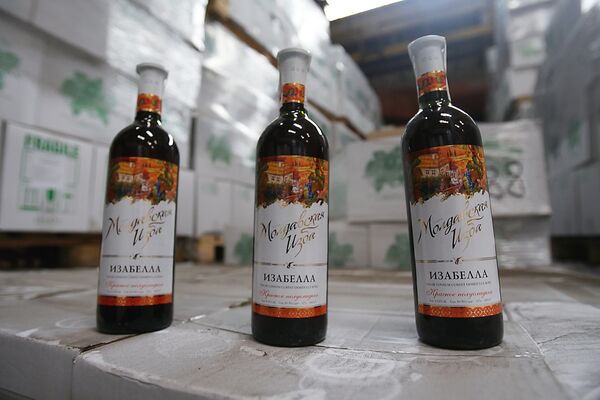Russian Federal Service for Consumer Rights and Human Welfare Protection (Rospotrebnadzor) will refrain from visiting Moldovan wine producing enterprises, the service's chief Gennady Onishchenko said.
The visit might have become a step towards solving of a problem with Moldovan imports to Russia, he said.
"Moldovan authorities' behavior, especially at the end of the last week, outweighed the scales in a direction to abstain from further actions, bearing in mind that the nature of their statements did not have any constructability and would turn our expert efforts into a waste of time," Onishchenko said.
Rospotrebnadzor experts discovered dangerous ingredients in 18 batches of Moldovan wine imported between June 30 and July 2, 2010, just after Moldova's acting President Mihai Ghimpu declared June 28, 1940, as the Day of Soviet Occupation. He signed the decree on June 24.
The degree, which has been widely criticized by Moldovan citizens, established June 28 as Soviet Occupation Day and ordered a Monument to the Victims of Soviet Occupation to be erected in front of the government building, mourning ceremonies across the country and that national flags be flown at half mast. The president also demanded that Russian troops be immediately withdrawn from the republic.
Moldova's Constitutional Court ruled on July 12 that a decree issued by the country's acting president was unconstitutional.
"The only thing, which could justify such logic of behavior, could be a fact of an indirect evidence of a cumulative impact of harmful substances, which we constantly find in the desired output [Moldovan wine], on a health status [of Moldovan authorities] and, therefore, [their] mental processes," Onishchenko said.
Russia, which previously imported 80% of all wine produced in Moldova, imposed an embargo on all Moldovan imports in March 2006. The ban dealt a severe blow to the small, impoverished ex-Soviet nation's economy, bringing many winemaking enterprises close to bankruptcy.
The ban was introduced after tests revealed the presence of pesticides and heavy metals in Moldovan wine.
Russia resumed imports in 2007 of Moldovan wine, meat, apples, grapes, tobacco, and sunflower seeds but imposed strict quality control standards.
In July 2009, Russia lifted all restrictions on the import of Moldovan wine and was even prepared to open extra customs points.
Moldovan exporters and Russian wine importers accuse Russia of banning Moldovan wine for political, rather than health reasons.
MOSCOW, August 22 (RIA Novosti)


